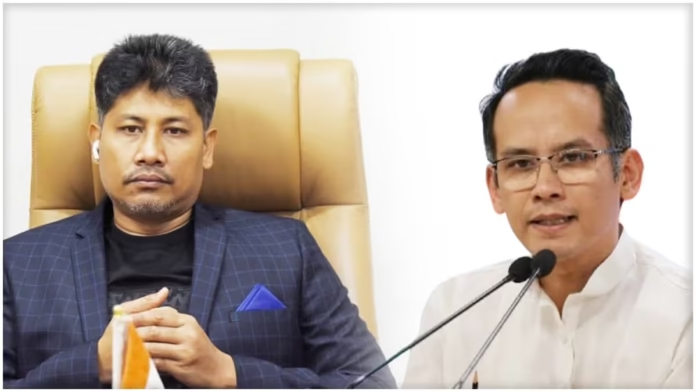Assam Minister Pijush Hazarika recently leveled serious allegations against Congress MP Gaurav Gogoi, accusing him of violating the Model Code of Conduct (MCC) during the Behali by-election. The accusations came in the wake of what Hazarika described as clear violations of the “silent period” stipulated by the Election Commission of India. According to Hazarika, Gogoi’s actions during this crucial phase of the election campaign crossed legal and ethical lines, and he should be held accountable for his actions.
The “silent period” refers to the time frame during which no political campaigns or public rallies are allowed after the election campaign has officially concluded, right before the voting takes place. This period aims to ensure a fair and unbiased election by preventing any last-minute influence or external pressure on voters. However, Hazarika claims that Gogoi’s behavior during this period was contrary to the principles set forth in the MCC, which is a set of guidelines that ensures free and fair elections.
Hazarika’s accusations primarily focus on an event that took place just days before the voting. He claimed that Gogoi made inflammatory statements aimed at swaying voters and influencing the outcome of the election, which is a direct violation of the rules. The BJP leader also emphasized that these remarks could have disturbed the peace and affected the voting process, thus raising doubts about the integrity of the election in the region. According to Hazarika, Gogoi’s actions could have led to undue pressure on voters during the silent period, thus breaching the Election Commission’s directives.
The Behali by-election saw significant political activity, and the silent period was supposed to provide voters with the opportunity to make an unbiased decision. Hazarika’s statement draws attention to how such violations can undermine the fairness of the election process. He stressed that all political parties must comply with the rules and regulations governing the election process, as it is crucial to maintain the trust of the people in the democratic system.
Hazarika also expressed his concern over the failure of the Election Commission to take swift action against such violations. According to him, it is essential that any breach of the Model Code of Conduct be promptly addressed to ensure that future elections are conducted transparently and without any undue influence. He called on the Election Commission to launch a thorough investigation into Gogoi’s alleged actions and take appropriate action.
In response to Hazarika’s allegations, Gaurav Gogoi and the Congress Party have denied any wrongdoing. Gogoi maintained that his campaign was conducted within the bounds of the law and that any statements made were part of his right to express his political views. The Congress MP also criticized Hazarika for making baseless accusations, which he claimed were aimed at distracting from the core issues of the by-election. Gogoi emphasized that the election process was fair and that the people of Behali had made their decision freely.
The tension between the BJP and Congress in Assam has been escalating, with both parties accusing each other of unfair practices during the election process. The issue of election code violations has become a point of contention in many elections, not just in Assam but across the country. Political leaders often find themselves in the spotlight during these critical periods, and any action perceived as unethical or illegal can have significant repercussions for their political future.
As the situation unfolds, it remains to be seen what steps the Election Commission will take in response to the allegations. The Commission has the authority to investigate such claims and impose penalties if necessary, including disqualifying candidates or invalidating election results in extreme cases. Hazarika’s comments have added another layer of complexity to the already charged political atmosphere surrounding the by-election.
Ultimately, the accusations of election code violations during the silent period in the Behali by-election underscore the importance of maintaining fairness and transparency in the electoral process. Whether the allegations hold merit or not, they bring to light the need for strict adherence to election rules and the responsibility of political leaders to uphold the integrity of the democratic process. The people of Assam are watching closely, and the resolution of this issue could have lasting implications for the political landscape in the state.




